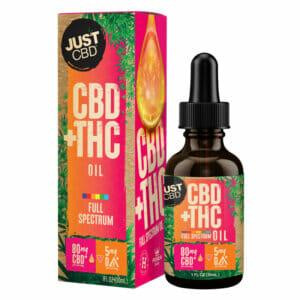Introduction:-
In recent years, there has been a surge in interest surrounding the therapeutic potential of cannabinoids, particularly CBD (cannabidiol) and THC (tetrahydrocannabinol). These compounds, derived from the cannabis plant, have gained significant attention for their diverse range of health benefits. In this article, we delve into the world of CBD THC oil, exploring their properties, differences, and the potential they hold for various medical applications.
Understanding CBD and THC:-
CBD and THC are two of the most well-known cannabinoids found in the cannabis plant. Unlike THC, CBD does not produce the psychoactive effects commonly associated with cannabis use. Instead, CBD is celebrated for its potential anti-inflammatory, analgesic, and anxiolytic properties. This makes it an attractive option for those seeking relief from conditions such as chronic pain, anxiety, and inflammation without the mind-altering effects.
On the other hand, THC is renowned for its psychoactive effects, which can induce feelings of euphoria and relaxation. While THC is associated with recreational use, it also possesses therapeutic properties, including pain relief, appetite stimulation, and nausea reduction. However, the psychoactive nature of THC may not be suitable for everyone, especially those looking to avoid altered mental states.
The Entourage Effect:-
When CBD and THC are used together, they can create what is known as the entourage effect. This phenomenon suggests that the combined effects of these cannabinoids, along with other compounds found in the cannabis plant, may be more potent and effective than when used individually. This synergy is thought to enhance the therapeutic benefits while minimizing potential side effects.
Medical Applications:-
CBD and THC oil are being studied for their potential in treating various medical conditions. CBD has shown promise in managing epilepsy, anxiety disorders, and chronic pain. Additionally, THC has been utilized to alleviate symptoms in cancer patients undergoing chemotherapy, as it can help with nausea, vomiting, and loss of appetite.
Regulatory Landscape:-
The legal status of CBD and THC oil varies across different regions. In many places, CBD derived from hemp is legal, as it contains minimal THC. However, THC-rich products may be subject to stricter regulations due to their psychoactive effects. It's essential to be aware of and adhere to local laws and regulations when considering the use of CBD and THC oil.
Choosing the Right Product:-
Selecting a CBD or THC oil product can be overwhelming given the multitude of options available. Factors to consider include the source of the cannabinoids (hemp or marijuana), the ratio of CBD to THC, and the extraction method used. It is advisable to consult with healthcare professionals or experts in the field to determine the most suitable product based on individual needs and preferences.
CBD and THC oil have emerged as powerful compounds with the potential to revolutionize the field of medicine and wellness. As research continues, we gain a deeper understanding of their individual and combined effects, offering new possibilities for managing various health conditions. Whether seeking relief from chronic pain, anxiety, or other ailments, individuals are increasingly turning to CBD and THC oil for a natural and holistic approach to well-being. As we navigate this evolving landscape, responsible use, education, and adherence to local regulations remain paramount in harnessing the full potential of these cannabinoids.
For More Info:-




.jpg)

Comments